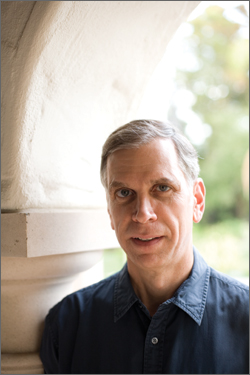John Donohue

“Let’s just say the seasons aren’t all they’re cracked up to be,”says John J. Donohue III, shivering at the thought of the 25 to 100 inches of snow that fall in New Haven each year.
But the temperate climate of Palo Alto wasn’t the main reason for this renowned empirical researcher to return to Stanford Law School after almost a decade at Yale. More than that, he was attracted back to the Farm by friends, Bay Area amenities, and most importantly by the thriving intellectual climate of the law school and the opportunities it presents for pursuit of his scholarly interests. He returns this fall to teach torts and empirical methodology as the C. Wendell and Edith M. Carlsmith Professor of Law.
Donohue, who holds a JD from Harvard and a PhD in economics from Yale and who was elected in 2009 to the prestigious American Academy of Arts and Sciences, is a heavyweight in the world of empirical legal research. When he first taught at SLS, he was one of only a few faculty members in this field. “Now,” he says, “Stanford has a great empirical research program with lots of colleagues who share my focus.”
Donohue’s scholarship explores the impact of law and public policy in a wide range of areas from civil rights and employment discrimination law to school funding and crime control—with particular emphasis on how economics intersects these areas. And here too there has been significant growth over the last two decades. Indeed, when the first meeting of the American Law and Economics Association (ALEA) was convened 20 years ago, Donohue was one of a handful of researchers presenting papers that included econometric analysis of large data sets. Since then, the field has exploded and Donohue, now the incoming president of ALEA, has been at the center of this development—in his own work and in his collaborations with other pioneers such as the 2000 Nobel Prize winner James Heckman, John Bates Clark Award winner Steven Levitt, Peter Siegelman, Justin Wolfers, Ian Ayres, and Stanford’s own youthful superstar Dan Ho, professor of law and Robert E. Paradise Faculty Fellow for Excellence in Teaching and Research.
“Stanford Law is already a leader in the field and, with John’s return, our position at the apex of this important area is solidified and secured,” says Larry Kramer, Richard E. Lang Professor of Law and Dean.
Donohue is perhaps best known for the 2001 article he wrote with Freakonomics author Steven Levitt that examines the impact of legalized abortion on the crime rate. “We predicted that there would be a reduction in crime 18 to 20 years following Roe v. Wade based on the theory that unwanted children commit more crime and that, following Roe, there would be fewer unwanted children reaching the age at which criminal activity typically begins,” explains Donohue. In fact, controlling for other factors, the crime rate dropped precipitously at the predicted point in time, and even though critics have disputed the study’s conclusions, Donohue and Levitt have successfully defended the results to this day.
More recently, Donohue challenged the view that the death penalty is morally required because of its deterrent value. One highly respected academic who propounded this position is Professor Cass Sunstein of Harvard Law School, who published an influential paper on the subject. Donohue’s research directly contradicted the empirical basis of Sunstein’s article, finding that in fact the death penalty is not an effective deterrent. The debate ended up in the majority and dissenting opinions in a U.S. Supreme Court death penalty case with Justice Stevens endorsing Donohue’s view that there was no evidence of deterrence and Justice Scalia citing Sunstein for the proposition that the death penalty deters. Ironically, Sunstein has now accepted Donohue’s position, writing that “the best reading of the accumulated data is that they do not establish a deterrent effect of the death penalty.” Whether Scalia will now follow Sunstein in endorsing Donohue’s position remains to be seen.
Donohue’s examination of the death penalty led to his involvement in pending litigation challenging the constitutionality of Connecticut’s death penalty. He is providing expert testimony, giving him the unique opportunity to apply his research beyond the confines of academia.
His scholarship docket is fully occupied with two additional projects—one examining the abuses of statistics in the law and the other looking at issues arising from the Supreme Court’s recent Second Amendment case, including NRA challenges to laws forbidding or even regulating the carrying of concealed weapons. And, of course, he’s gotten right back into the swing of campus life here with a full teaching load—doing what he says he loves, with colleagues—some new, some old—at a law school he’s happy to call home.
